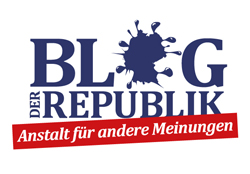Note: In the near future, the „Blog of the Republic“ will also offer some articles and analyses in English for its international readers as a test. Comments are welcome.
Paul Rusesabagina (67) became known worldwide through the film Hotel Rwanda. Now he has been convicted of terrorism in Rwanda’s capital, Kigali. He will spend 25 years behind bars. He will hardly leave the prison alive. What happened?
It is still about the 100 days of genocide in Rwanda from the beginning of April to July 1994. Hundreds of thousands of people were murdered in the civil war at that time. Predominantly members of the Tutsi ethnic group. At the time, Rusesabagina was quickly made manager of the Hôtel des Mille Collines in Kigali by his employer. In the turmoil and conditions of this murderous civil war, according to all we know, he saved the lives of well over 1,000 people who would otherwise have been murdered by protecting them; pulling strings; supplying potential murderers with alcohol and thus preventing them from entering the hotel. An unimaginable situation.
He fled to Belgium with his family in 1996 because they were seeking his life in Rwanda. He then joined the opposition against head of state Kagame, who, to the delight of all kinds of observers, brought about economic growth and infrastructure, but who, on the other hand, brutally suppressed any criticism of his person and leadership. Kagame persecuted critics and even killed them in foreign capitals. The FAZ reported: „Since 1994, Rwanda has been ruled with an iron fist by dictator and former rebel leader Paul Kagame. Kagame tolerates no opposition. He regularly wins elections with 98 or 99 percent of the vote; political opponents often disappear without a trace.“
Kagame carried the war into Congo. He is primarily responsible for causing a war in the eastern provinces of the Democratic Republic of Congo in the years that followed, resulting in over a million casualties and becoming part of what is now known as the African „World War,“ which did not officially end until 2017. Relatively little is known about this war and its causes in the German media. In 2018, Dr. Dennis Mukwege from Congo was awarded the Nobel Peace Prize for his incredibly brave fight against sexualized violence during this time of war. At the time, interest in the current situation in the Democratic Republic of Congo rose for a short time.
How little informed about the dealings and circumstances in that corner of the world we are, shows the person of Rusesabagina. The TAZ published a report on the trial against him on September 20 that makes me nauseous. „From movie hero to terrorist,“ it read even before the verdict was announced. It accused Rusesabagina of telling story that „was made into the Hollywood movie Hotel Rwanda, though some genocide survivors later called it embellished fiction.“
The TAZ text does not provide a shred of evidence for the author’s claim of „embellished fiction.“ If the text had been about a Green Party politician, there would have been immediate agitation: where is the source? For a Man of Color like Rusesabagina this does not seem to be necessary. This seems to be something like “headline racism”.
A Hollywood movie? Who produced it and paid for it? The Tagesschau also spins a yarn on September 20 about the „Hollywood hero“ who became a „terror suspect.“ Obviously, people are writing off each other. And the Tages-Anzeiger knows: „Rusesabagina was working as a cab driver in Brussels when Hollywood knocked on his door in 1999 and then told his life in the movie „Hotel Rwanda“. He was now famous, warning against further genocides became his profession, he appeared all over the world.“
The fairy tale of Hollywood movies. The film was not produced by Hollywood, but by „Kigali Films, Miracle Pictures/Seamus Production together with Inside Track and Mikado Film.“ Director Terry George emphasizes that the film was made independently of Hollywood: „Hollywood would not free a dollar for a project like this. As an independent production, we enjoyed the freedom to choose the actors we wanted like Don Cheadle and Sophie Okonedo. It would have also driven me crazy to tell the story from the perspective of the UN colonel, to deliver another one of those standard Hollywood romances about an honorable white man who bit the dust in Africa. I’m telling the story of a true African hero.“
It can’t be that difficult to research simple facts properly instead of blathering about Hollywood heroes and Hollywood movies that have nothing to do with Hollywood.
In Rusesabagina’s case, one always comes back to the 100 days of terror and mass murders. Because that is where the story has its roots. Criticism of Rusesabagina’s behavior – as it was and is voiced in the TAZ without citing sources – became audible after the former hotel manager criticized Paul Kagame’s way of governing. In 2012, Swedish journalist Leo Lagercrantz got critics talking in the Süddeutsche Zeitung and then questioned Rusesabagina: the former hotel manager was needing money, he was not a hero, the accusation went. The accused replied in the Süddeutsche Zeitung: „Until now, no one has alleged such things. Only now, after I have made political statements and President Paul Kagame feels threatened. Why don’t you ask the people who are criticizing me – why they are doing this right now?“ All of this, he said, is about Kagame being angry at him. Lagercrantz: „There may well be some truth in that.“
Rusesabagina was part of an opposition that also used violence to try to change the conditions in Rwanda. He says he did not commit any acts of violence himself. He was kidnapped – or rather abducted – to Kigali on Kagame’s orders. After a long period of time, he was put on trial, which by German standards can in no way be considered flawless or fair. The reporting on the circumstances of the trial does not reflect well on the TAZ either. Example: „Sources from Rwanda’s presidency emphasize that the trial of Rusesabagina is not about the personal persecution of a political opposition figure…“ What sources? What does the reference: „Sources from Rwanda’s presidency“ mean? Who is behind it? Is there anything more specific? And: why this secrecy?
The Austrian MEP Hannes Heide (member of the SPÖ) stated on February 21, 2021 with regard to the trial and the situation in Rwanda: „The country offers itself as safe and stable, courts tourists in Europe and even sponsors a Premier League soccer team. However, the case of Rusesabagina, the treatment of the rights of a Belgium citizen and therefore of the European Union, eclipses all these efforts… This is not the news we want to receive from Rwanda, because his fate is certainly not an isolated case. Time and again, rights violations occur in connection with the imprisonment of government critics. Numerous cases of persecution and deaths in police custody or detention remain unresolved. The handling of Paul Rusesabagina therefore becomes a symbol of the handling of the rule of law and human rights in Rwanda.“ It also fits into the picture of the questionable reporting on Rusesabagina’s case that demands from the European Parliament received little attention.
